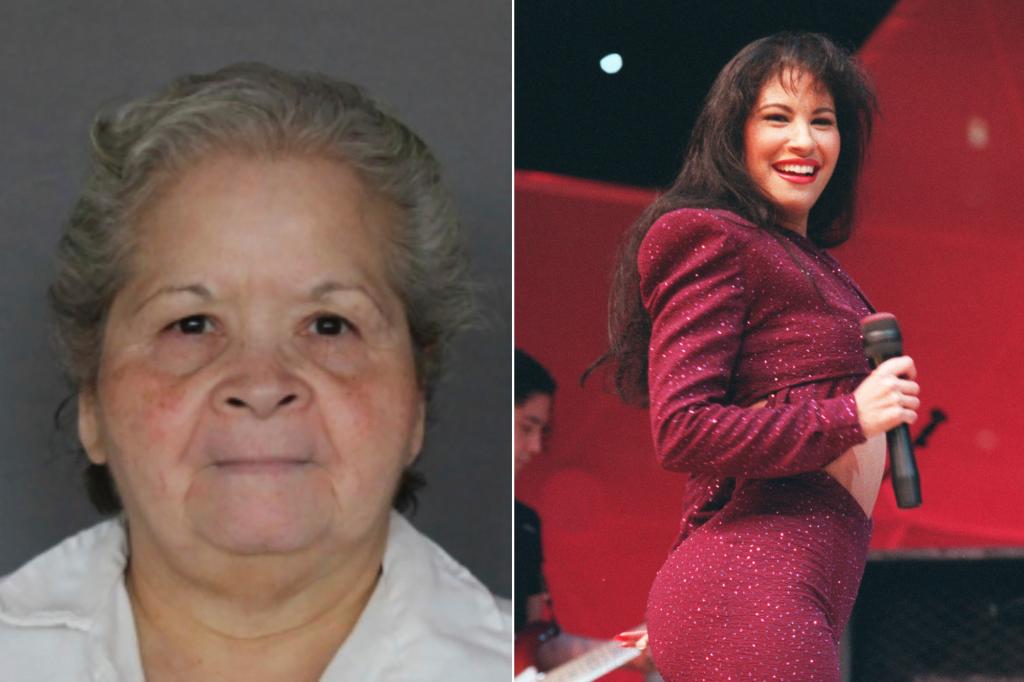The Unresolved Legacy: Yolanda Saldivar’s Parole Denial and Its Impact on Selena’s Memory
The tragic murder of Selena Quintanilla, a beloved music icon, in 1995 left an indelible mark on the world of Latin music and its fans. Her life was cut short by the actions of Yolanda Saldivar, a former friend and manager, who was subsequently convicted of the crime. Recently, Saldivar’s parole application was denied, reigniting discussions around Selena’s legacy and the broader implications of this unresolved tragedy. This article explores the ramifications of Saldivar’s parole denial and its impact on Selena’s memory, examining the emotional landscape of fans, the music industry, and the ongoing dialogue about justice and forgiveness.
A Brief Overview of the Selena Tragedy
Selena Quintanilla, often referred to as the “Queen of Tejano Music,” rose to fame in the early 1990s, captivating audiences with her powerful voice and charismatic stage presence. Her contributions to music and culture transcended borders, making her a symbol of hope and empowerment for many in the Latinx community. However, her life was tragically cut short when Yolanda Saldivar, who managed Selena’s fan club and later her boutiques, shot her on March 31, 1995, in Corpus Christi, Texas.
Saldivar was apprehended shortly after the incident and was subsequently convicted of first-degree murder. She was sentenced to life in prison, with the possibility of parole after 30 years. As the years passed, Saldivar’s case became a subject of media scrutiny and public interest, particularly surrounding her eligibility for parole.
The Parole Denial: What It Means
Recently, news broke that Yolanda Saldivar had been denied parole, a decision that has sparked renewed discussions about Selena’s legacy. For many fans, the denial is a source of relief, reinforcing the notion that justice has been served for a crime that shocked the world. The emotional responses to this decision are varied, reflecting the complexity of grief and the enduring love for Selena.
In the wake of the parole denial, some fans expressed a sense of closure, believing that Saldivar’s continued incarceration honors Selena’s memory. Others, however, find the situation more complicated. The ongoing debate about forgiveness and the possibility of rehabilitation for Saldivar raises questions about how society views justice and the capacity for personal change.
The Emotional Impact on Fans
Selena’s death left a void in the hearts of millions, and her legacy continues to resonate deeply. The emotional impact of her murder has been profound, not only for her family and friends but also for fans who grew up listening to her music and admiring her talent. The denial of Saldivar’s parole has reignited feelings of sadness and anger among many fans, who remember the joy Selena brought into their lives.
- A Community in Mourning: For many Latinx fans, Selena represented more than just a musician; she was a cultural icon who broke barriers and challenged stereotypes.
- The Soundtrack of a Generation: Selena’s music continues to inspire and uplift, with her songs often played at celebrations and gatherings, reminding listeners of her enduring influence.
- Shared Grief: Online communities and social media platforms have become spaces for fans to express their grief and celebrate Selena’s life, fostering a sense of solidarity among those who miss her.
Selena’s Legacy in the Music Industry
Selena’s impact on the music industry is undeniable. Her blend of traditional Mexican music with modern influences paved the way for future generations of artists. In the years following her death, numerous artists have cited Selena as an inspiration, and her influence can be seen in the work of contemporary musicians across various genres.
Her story has also been immortalized through documentaries, biopics, and tribute albums, ensuring that her legacy continues to thrive. The recent resurgence of interest in her life and music, especially following the release of the Netflix series “Selena: The Series,” has introduced her story to new audiences, keeping her memory alive.
The Broader Conversation: Justice and Forgiveness
The denial of Yolanda Saldivar’s parole raises essential questions about justice and forgiveness. Many fans grapple with the idea of forgiveness in the context of such a profound loss. Some believe that justice should be served through life imprisonment, while others feel that the possibility of rehabilitation should not be entirely dismissed.
In discussions surrounding Saldivar’s case, various perspectives emerge:
- The Need for Accountability: For many, the idea of allowing Saldivar back into society is unthinkable, given the severity of her crime.
- Understanding Mental Health: Some argue that understanding Yolanda’s psychological state at the time of the crime could pave the way for a more compassionate view of her actions.
- The Role of Public Sentiment: The strong emotions surrounding Selena’s death illustrate how public sentiment can heavily influence perceptions of justice and rehabilitation.
Conclusion: An Unresolved Legacy
The unresolved legacy of Selena Quintanilla continues to inspire conversations about justice, forgiveness, and the enduring impact of loss. Yolanda Saldivar’s parole denial is not just a legal decision; it serves as a poignant reminder of the pain felt by countless fans and the void left in the music industry. As we reflect on Selena’s life and the circumstances of her untimely death, it becomes clear that her legacy transcends the tragedy of her murder. It represents hope, resilience, and the transformative power of music.
In navigating the complex emotions surrounding this case and Selena’s memory, we are reminded that while some legacies may remain unresolved, they can also serve as a call to action—encouraging us to honor those we have lost by celebrating their lives and contributions, ensuring they are never forgotten.
See more CNET Live

